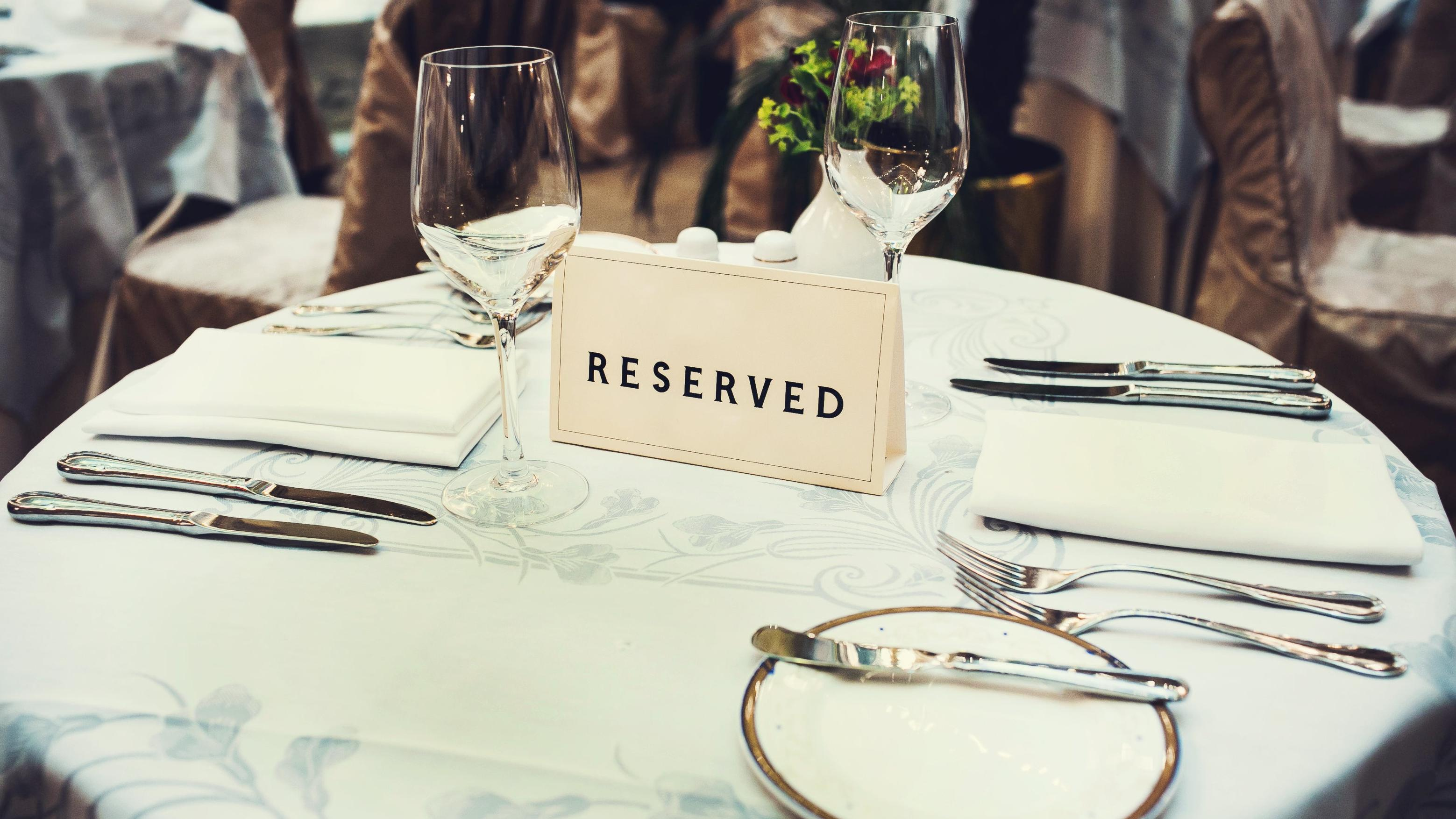The Rise Of Ultra-Exclusive VIP Dining
A new trend of members-only dining is making the industry even more stuffy.
During the pandemic, reservations at restaurants became commonplace, whether we liked it or not. Even though they've helped mitigate overcrowding in indoor spaces and allow restaurants to appropriately staff during labor shortages, it has made dining out feel even more exclusive. While some places have loosened their reservation policies as pandemic restrictions have ceased, others have leaned into that VIP feeling by requiring even more from those who want to dine out. In some cases, you need membership to even book your reservation.
How paywall dining works
According to The New York Times, the ability to make reservations is becoming a common credit card perk through programs like Resy and American Express's joint venture, Global Dining Access. Becoming a member of the program not only secures a spot in restaurants but offers exclusive access to high-end experiences like chef dinners and a "universal status within Amex and Resy partner restaurants, indicating you're a valued guest."
Some restaurants themselves are members-only, like Haiku in Miami, which has two tiers for membership: an invitation-only version that requires members to commit to at least four 10- to 12-course dinners per year, or a version that you can apply for that requires a commitment of at least two 10- to 12-course dinners per year. The restaurant doesn't publicly share the pricing for membership, which is a pretty good indication that it's very, very expensive.
Then there's the digital route, which is less a membership and more a paywall that restricts access to the online reservation platform. Think of it as the online version of sliding a $20 bill into a host's hand to jump the line, only with cryptocurrency. Sites like Front of House allow restaurants to sell "digital collectibles" (NFTs) that can help out devoted diners. For example, Dame Restaurant in New York City sold collectibles for $1,000 each that allowed its owners the ability to book a table once a week through the end of the year.
The downsides of paywall dining
If you are in a financial place to afford any of these options, you're severely limiting your culinary scope. While there are certainly positives of being a regular at a particular place, being forced to be a regular because of a monetary commitment doesn't feel like the best way to go about it. How many times would you have to go to Dame to make spending $1,000 on just the act of making the reservation worth it? Perhaps more than you'd like. (Of course, the idea of making an experience "worth it" implies that the money you spend is somehow finite, and for the elite, money simply doesn't work like that.)
In a world already overrun with too many uptight dining experiences, this is adding yet another layer of snobbery and class division to something that. at the end of the day, we all need to do to survive. Paying to make a reservation just feels like a waste of money, a fee put into place expressly to exclude. Instead of creating exclusive clubs we should be working toward making sure everyone can enjoy a nice meal out without breaking the bank.
